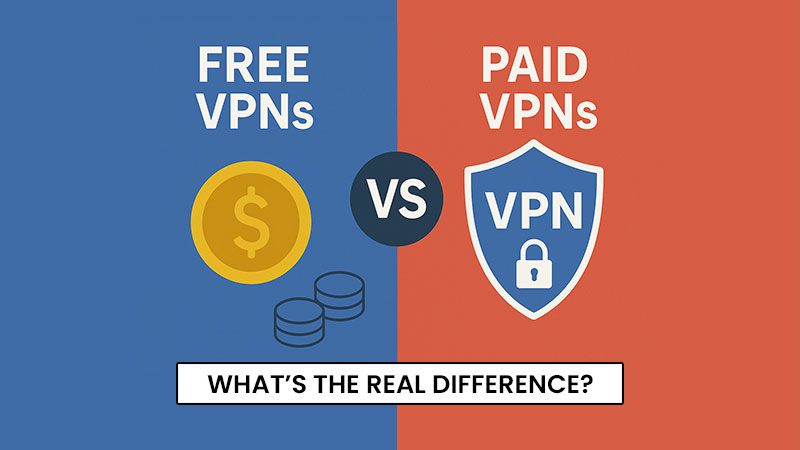Data sharing methods have undergone significant transformation over the last ten years. From the early days of email attachments to the rise of cloud storage, every era of the internet has offered a new solution for one of the most common challenges: moving files from one place to another. But in 2025, the need for peer-to-peer file sharing sites is greater than ever.
Whether you are a student sending research documents, a designer collaborating with a client overseas, or a filmmaker transferring gigabytes of raw footage, today’s digital world demands fast, secure, and user-friendly file transfer platforms. With the rise of remote work, cross-border collaborations, and ever-larger file sizes, traditional sharing methods simply can’t keep up.
This is where platforms like TransferNow, WeTransfer, FileTransfer IO, and Toffeeshare come in. These online file sharing services are redefining how people move large files efficiently while ensuring privacy, reliability, and ease of use.
In this in-depth guide, we’ll explore the best peer-to-peer file sharing sites in 2025, their features, risks, and future trends.
What Are Peer-to-Peer File Sharing Sites?

At its core, a peer-to-peer file sharing site is a platform that enables direct file exchanges between users. Unlike cloud storage services such as Google Drive or Dropbox, which store files permanently on central servers, these platforms are built for temporary, fast transfers.
How Peer-to-Peer Sharing Sites Work
- A user uploads a file to the platform.
- The site generates a link or direct peer-to-peer connection.
- The recipient uses the link to download the file.
- In some cases (like Toffeeshare), files never touch third-party servers at all.
Why Not Just Use Email?
Email was once the go-to method for sending documents, but in 2025 it’s highly outdated for large files. Most email providers restrict attachments to 25MB or less – a fraction of what today’s media-heavy world requires.
P2P vs Cloud Storage
- Cloud storage (e.g., Google Drive, OneDrive) is best for long-term access and file organization.
- Peer-to-peer file sharing sites are designed for quick, temporary transfers of files often exceeding several gigabytes.
Common Use Cases of Peer-to-Peer File Sharing Sites
- Creative professionals: Photographers, videographers, and musicians send raw files.
- Businesses: Share contracts, presentations, and reports with clients.
- Students and researchers: Collaborate on projects with large datasets.
- Software developers: Share builds, patches, and updates quickly.
In 2025, these large file transfer tools have become part of daily digital life.
Why Peer-to-Peer File Sharing is Popular in 2025
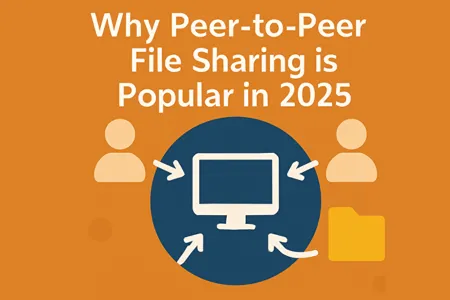
The demand for file transfer platforms continues to rise, and the reasons are clear. Let’s break it down:
File Sizes Have Exploded
From 8K videos to AI-driven datasets, today’s files are massive. A single film project or machine learning model can easily exceed 50GB, making traditional storage impractical. Services like TransferNow cater specifically to this demand.
Speed Is Non-Negotiable
With fast global internet and fiber connections, people expect instant results. Platforms like Toffeeshare leverage direct connections to maximize speed without bottlenecks.
Convenience Matters
WeTransfer made its mark by offering drag-and-drop simplicity, proving that file sharing doesn’t have to be complicated. In 2025, users prioritize convenience as much as performance.
Security and Privacy
While not designed for permanent hosting, these platforms now offer password protection, encryption, and expiry timers to safeguard files. Users want to share confidently without worrying about unauthorized access.
Remote Work and Global Collaboration
Globally distributed teams depend on digital file-sharing platforms to maintain project momentum. Whether it’s a startup in India working with a designer in Europe or a corporation managing teams across time zones, file sharing is essential.
Simply put, these platforms are no longer “optional.” They are a core part of digital productivity in 2025.
Top Peer-to-Peer File Sharing Sites in 2025
Let’s explore the four leading platforms shaping the future of file sharing.
TransferNow
TransferNow is one of the most reliable names in large file transfer platforms.
Features:
- Free transfers up to 5GB
- Premium accounts: up to 50GB per transfer
- Password protection and expiry controls
- Multi-device compatibility
Step-by-Step: How to Use TransferNow
- Visit the site.
- Upload your file(s).
- Enter recipient’s email or generate a sharing link.
- Set optional password or expiry date.
- Send or share the link instantly.
Pros:
- Large transfer limits
- Secure sharing features
- Great for professional use
Cons:
- Free tier may be restrictive for very large projects
WeTransfer
One of the most popular online file sharing services, WeTransfer is loved for its elegance and simplicity.
Features:
- Free transfers up to 2GB
- Pro version: 20GB transfers and 200GB storage
- Clean, minimalist interface
- Integration with creative tools
Step-by-Step: How to Use WeTransfer
- Drag and drop your files onto the site.
- Add recipient’s email or copy the download link.
- Optional: Upgrade to Pro for bigger transfers.
Pros:
- Extremely easy to use
- Perfect for creatives and small teams
- Reliable performance
Cons:
- Free limit is relatively small (2GB)
- Some advanced features locked behind paywall
FileTransfer IO
A rising star in 2025, FileTransfer IO focuses on practicality.
Features:
- Free transfers up to 6GB
- Password-protected links
- No signup required for basic use
- Lightweight design for quick uploads
Pros:
- Higher free limits than WeTransfer
- Great balance of speed and security
- Quick access without accounts
Cons:
- Not as feature-rich as TransferNow
- Smaller user base compared to bigger platforms
Toffeeshare
The most unique platform on this list, Toffeeshare is truly peer-to-peer.
Features:
- Unlimited file size (limited only by internet speed)
- Direct device-to-device transfer
- End-to-end encryption
- No cloud storage involved
Pros:
- Maximum privacy (files never touch servers)
- Unlimited transfers
- Ideal for highly sensitive or personal files
Cons:
- Both sender and receiver must stay online during transfer
- Speed depends entirely on both internet connections
Security Risks of Peer-to-Peer File Sharing
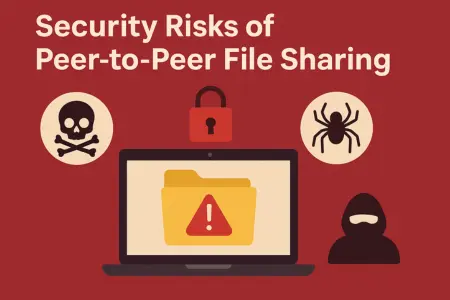
While these file transfer platforms are convenient, users should be cautious.
Common Risks
- Data interception during transit if not encrypted.
- Malware hidden inside downloaded files.
- Privacy concerns when metadata is logged.
- Phishing attacks using fake file-sharing links.
Best Practices for Using Peer-to-Peer File Sharing Sites
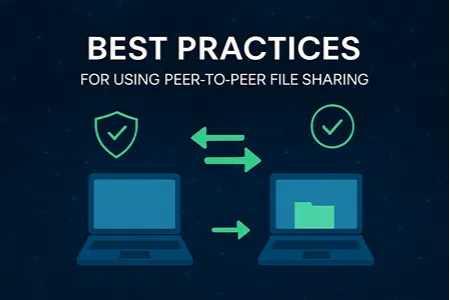
To stay safe and efficient in 2025, follow these practices:
- Use trusted platforms only.
- Verify senders before downloading files.
- Password-protect links when possible.
- Enable expiry dates so files self-delete.
- Scan all downloads with antivirus tools.
- Avoid public Wi-Fi for sensitive transfers.
By following these, you’ll minimize risks while enjoying the benefits of modern peer-to-peer file sharing sites.
The Future of Peer-to-Peer File Sharing
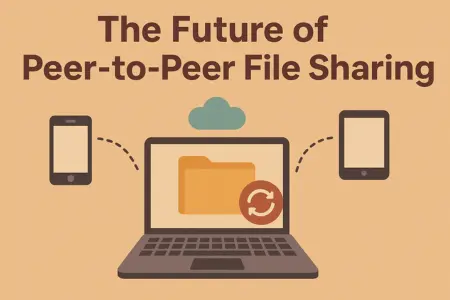
Looking ahead, the future of online file sharing services looks even more promising.
Blockchain Integration
For file authenticity and transparent transfer logs.
AI-Driven Security
Automatic detection of suspicious or harmful files.
Lightning-Fast Transfers
With 5G and 6G networks, huge files will move in seconds.
Cloud + P2P Hybrid Models
Platforms may blend storage + direct sharing for flexibility.
Collaboration Integrations
Expect tighter links between file sharing platforms and tools like Slack, Trello, or Figma.
Simply put, the next generation of file transfer platforms will be smarter, faster, and more secure than ever before.







